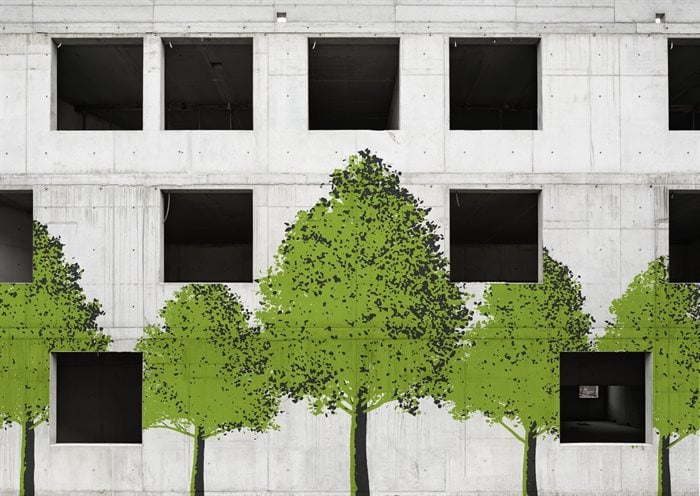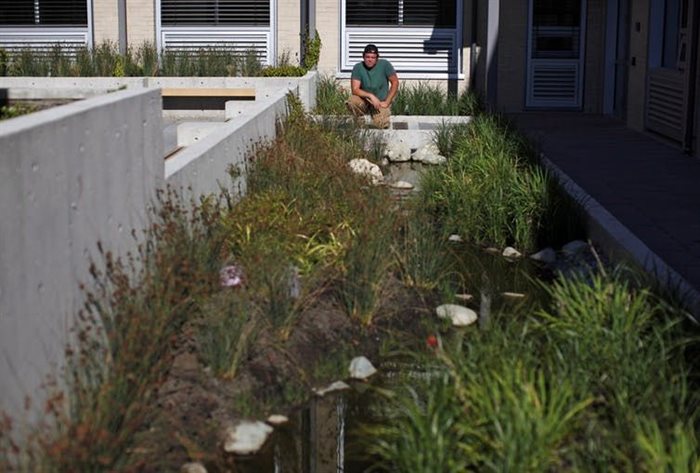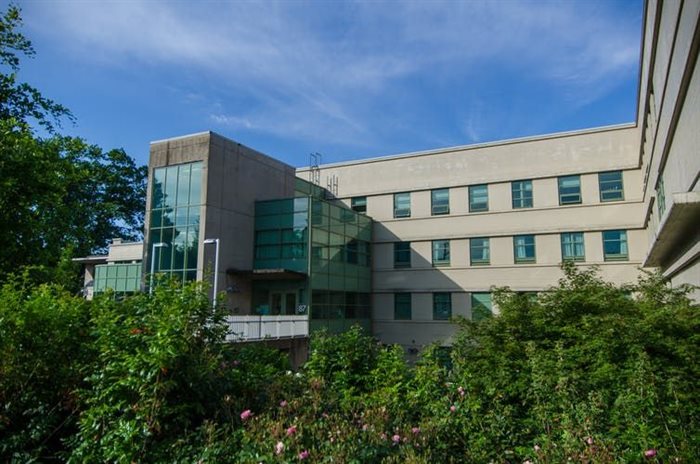
Source: Gallo/Getty
Recent research shows that green buildings can also improve the health and productivity of those who live or work inside them. In some cases, green buildings can have the same benefits as spending time in nature, which can benefit people living in cold climates.
Green buildings cost 5-10% more than conventional buildings. Some planners might worry about the added design and construction costs of a green building. But detailed analyses show that the small increase in building costs has noticeable benefits on the health and wellness of those working or living inside the building — or nearby.
Energy savings
Buildings with green roofs, green walls, green interior decoration or those surrounded by green infrastructure are all considered to be green buildings. These buildings usually contain algae, grass, herbs, vegetables or other leafy green or micro-green plants on their interior or exterior surfaces.
Covering the roof of an uninsulated building with plants reduces the amount of energy used in heating by up to 5% in the winter, and the cooling energy by as much as 33% in summer, which saves money. It also reduces daytime indoor temperature fluctuations in the absence of air conditioning.

Replacing a building’s black asphalt and roof shingles with plants can lower the surrounding air temperature, filter storm water and lower its energy use. The Canadian Press/Chad Hipolito
Cities often have warmer air temperatures than the rural areas around them because their dark surfaces absorb the sun’s rays and radiate the heat. Green buildings can help reduce this urban heat island effect.
Computer modelling has shown that summer temperatures can be reduced by 2°C if 7% of an urban rooftop is green. Even in relatively colder cities like Toronto or New York, covering 50% of the roof with plants could reduce the local temperature by about 1°C in the summer.
This dip in temperature comes with numerous benefits. Studies show people working or living in areas with high proportions of green roofs have better mental health, heal more quickly after an illness and are more productive at work.
Improved air quality
Indoor air pollution is one of the top five environmental risks to public health, according to the US Environmental Protection Agency. High levels of sulfur dioxide, nitrogen dioxide, PM10 (particulate matter with a diameter of 10 microns or less) and airborne microbes can contribute to serious respiratory illness.
A 20% increase in the surface area of green roofs and walls in downtown Toronto could meaningfully reduce the air levels of nitrogen dioxide, ozone, sulfur dioxide and PM10, and generate a savings of $190,000 annually in terms of pollution removal.
One study showed that there were fewer mould spores and microbes in a room where houseplants covered one-third of the floor space compared to a room with no house plants. Plants also increase indoor humidity levels in dry climates, reducing the likelihood of dry eyes, itchy or scratchy throat or chapped lips.
Faster recoveries
Recent research has also shown that plants can help hospitalised patients heal faster.
A report by the Green Building Council of Australia found that hospitals with green infrastructure, such as an ornamental green wall, plants on every balcony and large trees around the building, reduced average hospital stays by 8.5%, sped up recovery time by 15%, reduced the rate of secondary infections by 11% and lowered the need of pain medication by 22%.
Not only do buildings with plants help patients heal faster, but they also energise the doctors, nurses and other staff who work there, and provide aesthetic, acoustic and air quality benefits.

Some studies have found that when patients could see trees, gardens and other nature from their hospital beds, they had faster recovery times and needed less medication. (Jeff Hitchcock/wikimedia), CC BY
Lower emissions
Interior spaces with green walls, vertical gardens or potted plants can reduce noise levels, which helps occupants concentrate on their work. Outdoor permeable surfaces, such as soil, rock wool and vermiculite, and plants on buildings’ roofs and courtyards reduce echos.
Green workplaces meet all the criteria of the “triple bottom line”, summarised as “people, planet and profit”. These improve the health and well-being of people, improve energy efficiency and boost productivity.
Green infrastructure has clear climate benefits too. A study by the Green Building Council of Australia found that by adding green walls, roofs and other low-energy interventions, such as using LED lights, adding more windows to increase the amount of daylight and modifying ventilation systems to recover heat rather than expelling it outside, a green certified building produces 62% fewer greenhouse gas emissions than an average Australian building.
It’s high time green buildings became the norm to improve well-being, air quality and carbon emissions.
This article is republished from The Conversation under a Creative Commons license. Read the original article.





















